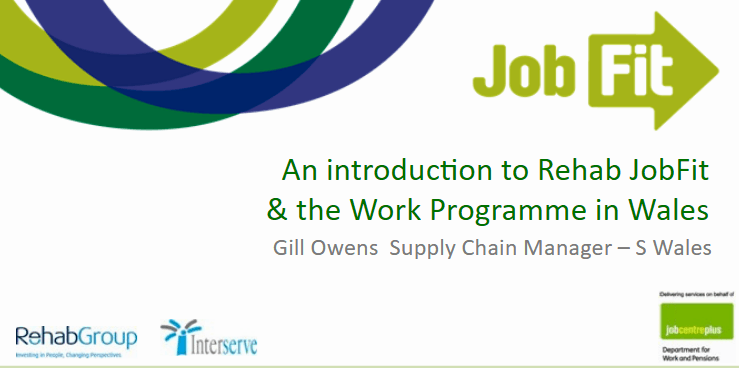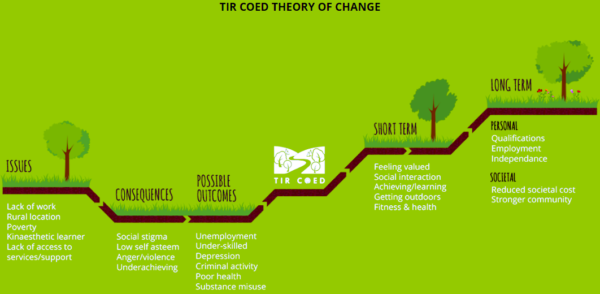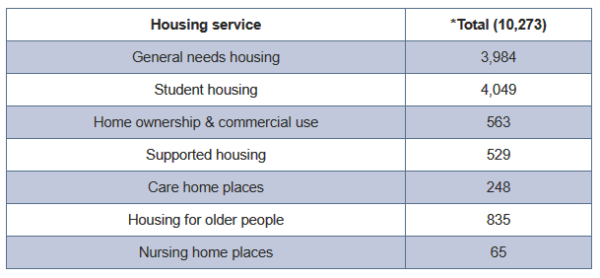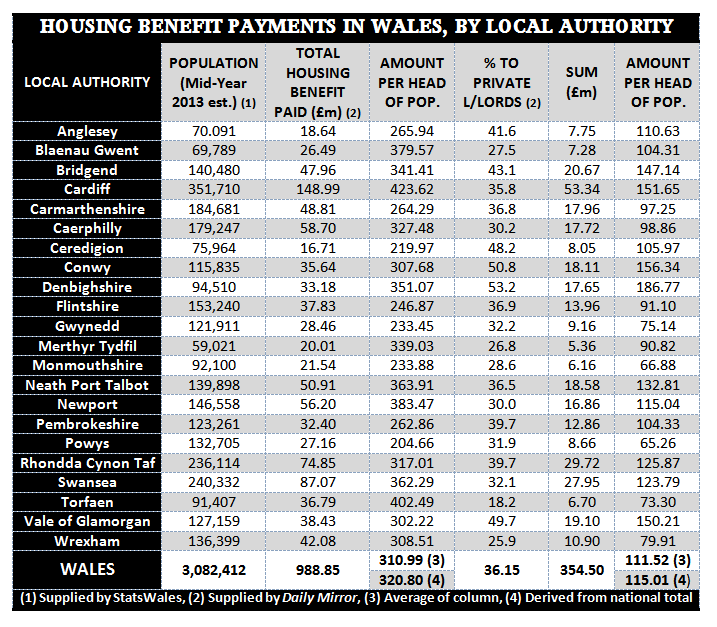PLEASE APPRECIATE THAT I GET SENT MORE INFORMATION AND LEADS THAN I CAN USE. I TRY TO RESPOND TO EVERYONE WHO CONTACTS ME BUT I CANNOT POSSIBLY USE EVERY BIT OF INFORMATION I’M SENT. DIOLCH YN FAWR
♦
HOUSE OF THE RISING SON
![]() In an earlier post of assorted items one dealt with the Labour Party in Cydweli. We looked at the party’s safe house in Llys Gwenllian, the abode of the current mayor, Phil Thompson, and – apparently – a number of others who’ve stood for the party in recent elections.
In an earlier post of assorted items one dealt with the Labour Party in Cydweli. We looked at the party’s safe house in Llys Gwenllian, the abode of the current mayor, Phil Thompson, and – apparently – a number of others who’ve stood for the party in recent elections.
I asked if this was a house of multiple occupation seeing as it has also been given as his address by Arwyn Rhys Williams, a candidate in a recent town council by-election. Though now I learn that young Arwyn is the fruit of Thompson’s loins, but uses his mother’s name.
Despite the claimed address in Cydweli Arwyn’s Facebook page seems to locate him either in Swansea or Tenby. Maybe he should update it.

Anyway, Arwyn lost the by-election, getting just 90 votes while his Independent opponent got 369.
Something of which I wasn’t aware when I wrote my earlier piece was that when Arwyn’s dad stood for the county council in 2017 his proposer was a Lois Poynting. Who is, as we learn from her Linkedin profile (here in pdf format), one of those ‘butterflies’ that have blown into Wales to flit between the public and third sectors.
Lois probably arrived in Wales when her husband took up employment with Calsonic in Llanelli and seems to be based in Cydweli. (Ignore ‘Swansea’ on the Linkedin profile as Linkedin seems to locate everyone to the nearest city.)
That Linkedin profile also tells us that up to November 2017 Lois worked for Shared Lives Plus, an Englandandwales organisation with its headquarters in Liverpool.
Shared Lives Plus brings people with ‘difficulties’ – and this includes youngsters leaving care – into Wales to live with ‘carers’ who may also have moved from England. These new ‘families’ often live in housing association properties.
This is what Labour candidate Beryl-Ann Williams was alluding to in her election material when she talked of turning Cydweli into “an autism and dementia friendly town”. (But of course it goes beyond autism and dementia.)

This clear reference to the work of Lois Poynting and Shared Lives Plus also highlights again the strong and mutually-beneficial relationship between the Labour Party and the third sector.
A relationship that, on the personal level, has many times become sexual.
Though what I find odd about this Shared Lives Plus project across southern Wales (which then follows the M4 to the source of many of its clients) is the low key approach. I put that down to two things: one, a certain reluctance to inform the public; two, the project has all the money it needs.
Because in different circumstances the third sector is adept at using the media to publicise various causes and then exploiting that publicity to screw money out of the ‘Welsh Government’.
Here are a couple of examples.
◊
VISIBILITY IS EVERYTHING
A few weeks ago Swansea Women’s Aid criticised a police crackdown on prostitution in the city. In fairness, Plod wasn’t dragging the girls off to the cells but offering support, a way out.

Yet it appeared from the criticism of the police action that Women’s Aid wanted the prostitutes out on the streets, in full public view.
And this is certainly the case with the homeless, who are blessed with dozens of organisations to exploit help them, using a fraction of the hundreds of millions of pounds these organisations receive from the ‘Welsh Government’.
In Cardiff, the city council has been trying to assuage public anger over the centre of the city having so many homeless people and beggars. These don’t just sit in doorways but live in tents they’ve been given by well-meaning but misguided charities and other groups.
A few weeks back the article below appeared in Llais y Sais. It tells that in the past three years 144 people have been given one-way tickets home from Cardiff. Some to eastern Europe, one to Bermuda. (Someone left Bermuda to live on the streets of Cardiff!)

This policy – entirely voluntary – clearly angered Shelter Cymru, one of the major players in the homeless racket. The extract below is a statement by Shelter Cymru taken from the article above.

Let me translate: ‘The pressure we in the homeless sector have brought to bear on the ‘Welsh Government’ has resulted in legislation ensuring that all those we can attract to Wales must be looked after. This system also results in us receiving tens of millions of pounds every year, at least 80% of which goes on salaries, pensions, new cars and jollies to conferences and the like’.
The homelessness debate has raged on. Just last week, former Plaid Cymru leader Leanne Wood was persuaded by her friends at the Wallich – another major player in the homeless racket – to speak in the Assembly.

Is this venerable legislation really being enforced by our constabularies (perhaps with mutton-chop side-whiskers complementing stovepipe hats?). Well, actually, no. It looks as if the saintly Leanne was misinformed by the sisters-in-greed at the Wallich.

Proven by the information (above) received by a source in response to Freedom of Information requests to our four police forces. Of course, it could be that our police have developed a sudden fondness for this antediluvian legislation in the past few months, with this not being shown in the FoI responses, but I doubt it.
It’s just the third sector doing what it does best – exaggerating a problem, or importing it, or telling lies to keep the moolah flowing.
Homelessness made the news again on Monday when the BBC reported on a scheme from Finland called Housing First that is being introduced by the ‘Welsh Government’.
An interesting read with – I am informed – a number of important omissions.
One being that Derek ‘Del’ Clarke, quoted and pictured in the story, is a native of Dublin, in Ireland. He was offered a ticket home and a flat was guaranteed by Dublin City Council. He chose to stay on the streets of Cardiff. (One-way tickets is also how the Housing First scheme operates in Finland.)
Homelessness is an undoubted problem, an indictment of any society, but no one should be allowed to make an industry out of it, with hundreds of careers sustained by the public purse.
Yet that is exactly what has happened in Wales.
◊
LOIS GOES WEST
We left Lois Poynting in Cydweli, arranging transfers of people with ‘issues’ into Wales, thereby increasing the burden on our NHS and other services. Now she’s working in Pembrokeshire, and doing very similar work.
If we turn again to her Linkedin profile we read . . .

You’ll see that I’ve highlighted two programmes. I couldn’t find anything specific to ‘Communities for Work and Communities for Work Plus’ because the Pembrokeshire County Council website tells us: ‘Futureworks delivers the Work Programme in Pembrokeshire and Ceredigion on behalf of Rehab Jobfit, one of two prime contractors for the programme in Wales’.
(Even though Futureworks gives addresses in Cardigan and Aberystwyth I can find no mention of it on the Ceredigion council website. Does Ceredigion council know?)
So what can we learn about Futureworks and Rehab JobFit? There is only a skeletal website for the second of them, perhaps because there is no Rehab JobFit company as such, just a Limited Liability Partnership, that most dubious and opaque of set-ups. Another possibility might be that bad publicity has forced it to either pull out or change its name.
The three partners in the LLP are Interserve Service Futures Ltd of Reading, TGB Learning Ltd of Birmingham, and The Rehab Group, of Dublin. All are interlinked and may be based in Dublin for tax purposes. Strange that this should be allowed by the UK Government for which Rehab JobFit has done so much work.
Let’s now return to the Pembrokeshire County Council website; you should start with ‘Apprenticeships and Training‘ and keep turning the pages. What we read there seems innocuous enough – training youngsters, giving them skills, etc.
If that’s all it is/was, why does it have to involve a company based in England, or Ireland, with ‘Rehab’ in its name, which of course is short for rehabilitation? The suggestion made to me is that young tearaways are brought into Pembrokeshire (and Ceredigion) for ‘rehabilitation’. (Often their families are similarly relocated.)
And this may be what’s explained under ‘Background‘ where we read: ‘Community Task Force on behalf of Groundwork UK – services for young people (18-24 years) who have been unemployed 9 months or longer. Young people developed work related skills through community projects either in the third sector or in-house.’
So who are Groundwork UK, and how do they fit into the picture? And why is the Pembrokeshire council website referencing Groundwork UK when we have Groundwork Wales? In fact, we have a Groundwork Wales and a Groundwork North Wales!
The Charity Commission provides the information in the panel below. Note that Groundwork Wales operates ‘throughout Wales’, but Groundwork North Wales operates ‘throughout England and Wales’. How do we explain this?

Is it the old story of northern Wales being treated as an extension of north west England? And might this cross-border activity explain what is clearly a reference to rehabilitation in the panel above where we read of people changing ‘their own lives for the better’.
This is a relationship that should have been brought to an end by devolution, but if anything, devolution has made it worse. Perhaps because we’ve had twenty years of a Labour government in Cardiff so desperate not to be perceived as ‘nationalist’ that it encourages England to walk all over us. And then dresses up this cowardice as Wales being ‘welcoming’.
Maybe I’m wrong, and maybe there’s some other explanation as to why Groundwork North Wales, covering just a third of the country, has much more money than Groundwork Wales. There may also be a simple explanation for why it operates ‘throughout England and Wales‘.
If so, I’d like to hear it.

Lois Poynting worked for a number of years for Chwarae Teg. At Chwarae Teg now we find Gill Owens, an ‘Employer Partner’. Before that Gill was at Welsh Women’s Aid. And not long before that she was Service Development Manager at Rehab JobFit LLP. All set out here in her Linkedin profile. (Here in pdf format.)
Perhaps doubling up as ‘Supply Chain Manager – S Wales’.
Poynting and Owens seem to be ships that passed in the night.
With Rehab JobFit, Futureworks, Work Programme, Groundwork and the rest we are in the netherworld where UK Government programmes and private probation companies link with community work orders handed down by local courts to allow more serious offenders – from ‘away’ – to be slipped into the system.
Where the murk also helps obscure individuals moving between the public, the private, and the third sectors, but often doing very similar work. For example, before Lois Poynting was putting up the Welcome signs in Cydweli for Shared Lives Plus she worked for (takes deep breath) Mid and West Wales Health & Social Care Regional Collaborative (MWWHACRC).
This outfit has no online presence of its own, it just crops up in assorted references. Though I was directed to this document which has Lois Poynting signing, on behalf of MWWHACRC, a deal for services to be provided by Capita, one of the UK Government’s favourite ‘delivery agencies’.
(Though Capita’s record is so abysmal that it appears regularly in Private Eye as ‘Crapita’.)
The document to which I’ve linked appears to show a Welsh health agency outsourcing to a private company. Is this the privatisation of Nye Bevan’s National Health Service so dreaded by the bruvvers? Do they even know?
But then, what exactly is the Mid and West Wales Health & Social Care Regional Collaborative? Is it third sector? Is it private sector? Is it part of the Wales NHS? To whom is it answerable?
Answers on the usual dog-eared postcard, please.
UPDATE 17.05.2019: If we look at Gill Owens’ Linkedin Profile we see that she gives her primary occupation as ‘Property Developer and investor at St Michaels Property Development & Investments Ltd’, of Ystrad Mynach.
Yet Companies House tells us that this company has not filed accounts since May 2018 (up to 31.08.2017) and they were for a dormant company with an address in Kent. From the same source we learn that three charges have been taken out in March 2018 and January 2019 for two properties in Leigh, near Wigan.
◊
THE MONSTER IN OUR MIDST
I’ve studied the operations of the third sector for a number of years, and certain things have become clear.
A fundamental problem is that too many ‘Welsh’ third sector bodies do not limit themselves to Welsh needs or interests because by importing many of their clients they can expand their operation thereby boosting their funding and salaries.
This constant importation of clients both distorts the picture for Wales and also means that no problem is ever adequately dealt with because to do so would put many people out of a job.
Third sector operators get away with this deceit because they are shrewd and devious, able to run rings around our politicians at both Assembly and council level.
Third sector operators like to present themselves as principled and moral, but when push comes to shove, and if there’s money to be made, or personal advancement to be secured, they’ll sup with the devil.
All of which results in Wales being burdened with a monster that must be constantly fed in order to sustain thousands of unnecessary jobs sucking up an ever greater proportion of the Welsh public purse.
This monster dictates that the homeless and prostitutes must be left on the streets for all to see; with drug addicts and delinquents perceived as business assets.
The third sector’s most significant contribution to Wales is to make a poor country poorer. How much longer do we tolerate this exploitation?
♦ end ♦































